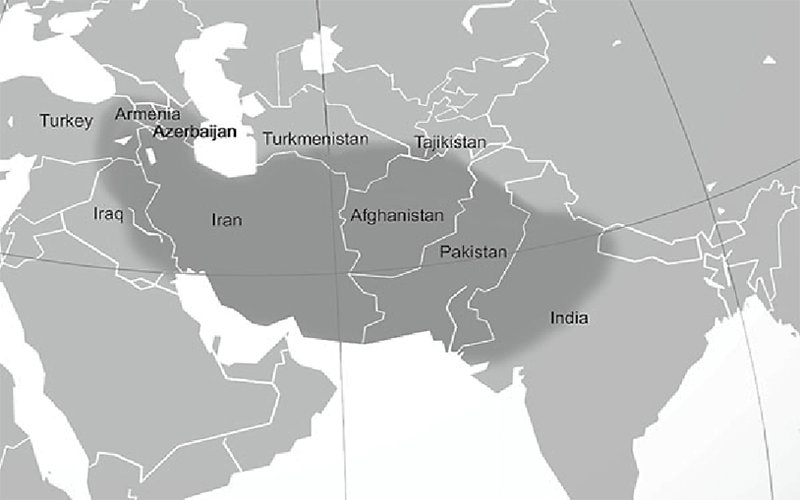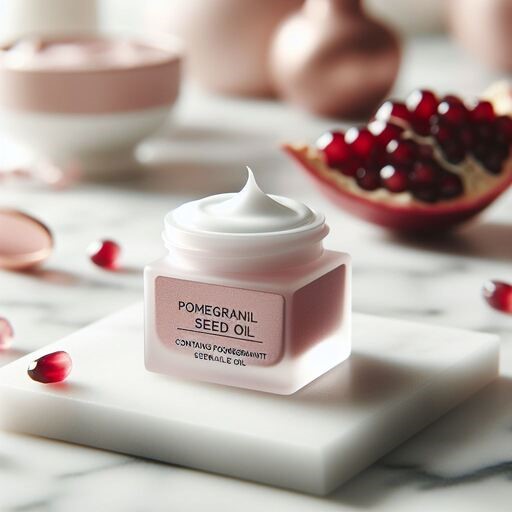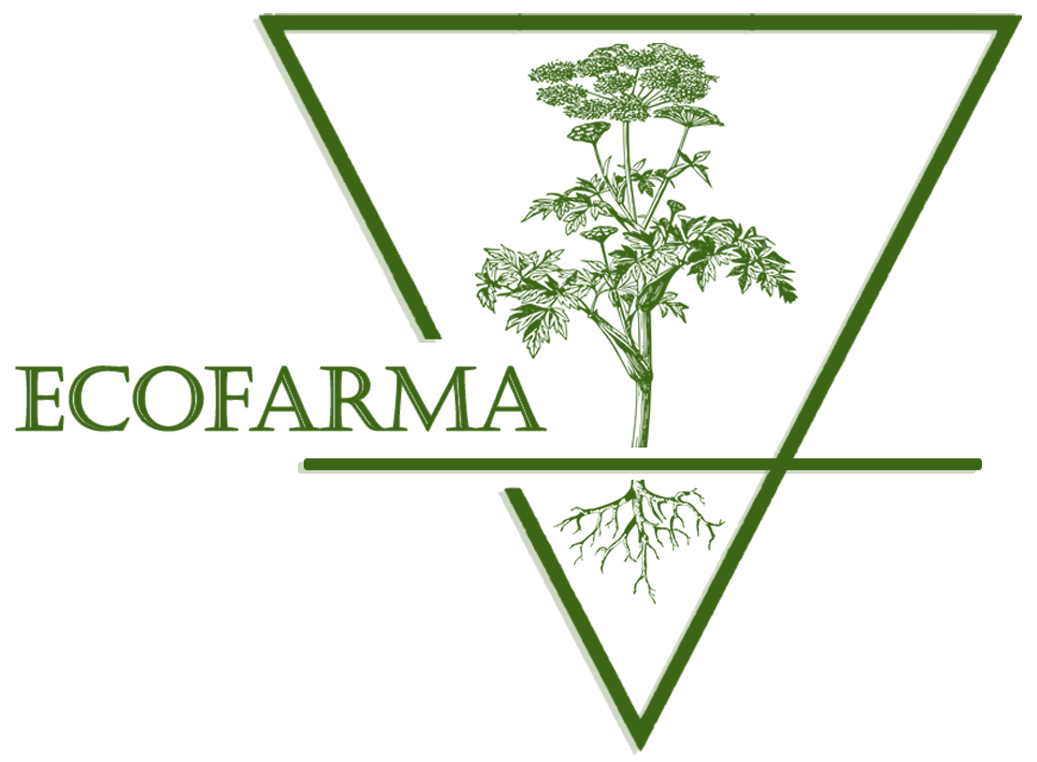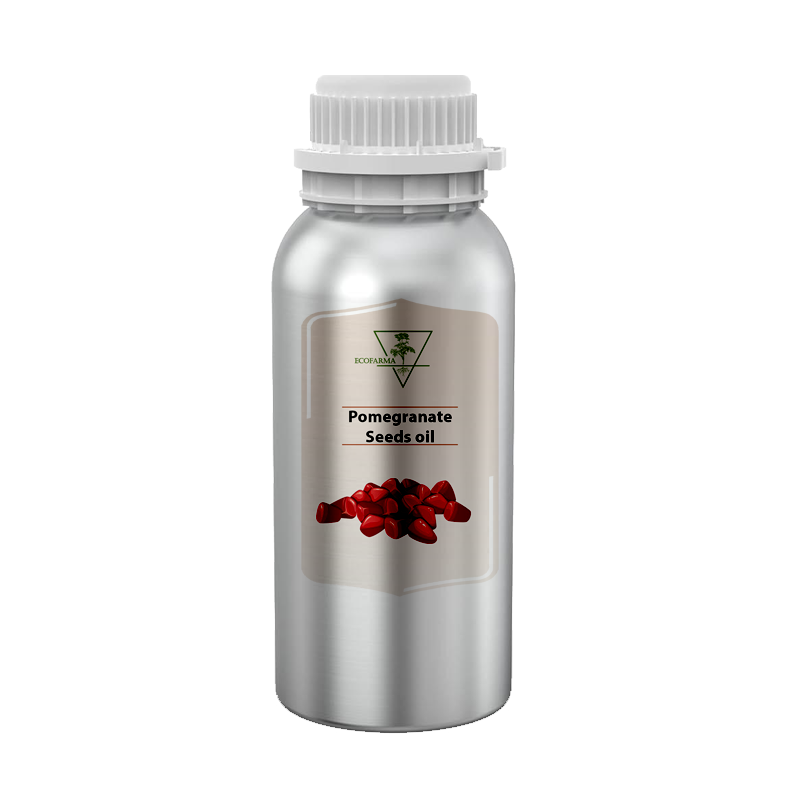Description
Pomegranate Seeds oil
Journey of Pomegranate:

Picture: Hummer, Kim & Pomper, Kirk & Postman, Joseph & Graham, Charles & Stover, Ed & Mercure, Eric & Aradhya, Malli & Crisosto, Carlos & Ferguson, Louise & Thompson, Maxine & Byers, Patrick & Zee, Francis. (2012). Emerging Fruit Crops. 10.1007/978-1-4419-0763-9_4.
What is Pomegranate Seed Oil?
Pomegranate seed oil, derived from the seeds of the pomegranate fruit (Punica granatum), is a potent natural oil recognized for its rich nutritional and medicinal properties. This fruit, native to the region stretching from modern-day Iran to northern India, has been cultivated since ancient times.
The oil extracted from its seeds has a unique composition, rich in antioxidants, fatty acids, and vitamins, making it a valuable ingredient in various health, beauty, and wellness products. Pomegranate seed oil is primarily known for its high content of punicic acid, a type of conjugated linolenic acid (CLA).
This fatty acid is renowned for its anti-inflammatory and anti-carcinogenic properties. Additionally, the oil contains other beneficial compounds such as tocopherols (vitamin E), phytosterols, and polyphenols, which contribute to its diverse range of health benefits. The extraction process typically involves cold pressing the seeds, ensuring the oil retains its potent bioactive compounds.

Pomegranate Seed Oil Benefits
The benefits of pomegranate seed oil are extensive, encompassing a wide array of health, cosmetic, and therapeutic applications:
- Antioxidant Properties: Pomegranate seed oil is rich in antioxidants, which help combat oxidative stress and free radical damage in the body. This can contribute to a reduced risk of chronic diseases such as heart disease and cancer.
- Anti-inflammatory Effects: The punicic acid in pomegranate seed oil has powerful anti-inflammatory properties, which can help reduce inflammation in conditions such as arthritis and other inflammatory diseases.
- Heart Health: Regular consumption of pomegranate seed oil can help lower cholesterol levels, improve blood pressure, and enhance overall cardiovascular health due to its high levels of polyunsaturated fatty acids and antioxidants.
- Immune Support: The oil’s rich antioxidant profile supports the immune system by protecting cells from damage and improving immune response.
- Cancer Prevention: Some studies suggest that pomegranate seed oil may have anti-carcinogenic effects, particularly against breast and prostate cancer, due to its high punicic acid content.
- Digestive Health: The anti-inflammatory properties of pomegranate seed oil can help soothe the digestive tract, reducing symptoms of conditions like inflammatory bowel disease.

Pomegranate Seed Oil for Skin
Pomegranate seed oil is highly prized in skincare due to its ability to nourish, protect, and rejuvenate the skin. Here are some specific benefits:
- Anti-Aging: The oil’s high antioxidant content helps reduce the appearance of fine lines and wrinkles, promoting a youthful complexion. It stimulates collagen production, which improves skin elasticity and firmness.
- Moisturizing: Pomegranate seed oil penetrates deeply into the skin, providing intense hydration without clogging pores. This makes it suitable for all skin types, including oily and acne-prone skin.
- Healing and Repair: The regenerative properties of pomegranate seed oil promote skin cell regeneration and repair, aiding in the healing of wounds, scars, and sun damage.
- Anti-Inflammatory: The oil’s anti-inflammatory properties can help reduce skin inflammation and redness, making it beneficial for conditions like eczema, psoriasis, and acne.
- Protection: Pomegranate seed oil forms a protective barrier on the skin, shielding it from environmental stressors such as pollution and UV radiation.

Pomegranate Seed Oil for Hair
Pomegranate seed oil is also a valuable addition to hair care routines, offering numerous benefits for maintaining healthy, strong, and vibrant hair:
- Scalp Health: The oil’s anti-inflammatory and antimicrobial properties help maintain a healthy scalp, reducing dandruff, itchiness, and other scalp conditions.
- Hair Growth: By stimulating blood circulation to the scalp and nourishing hair follicles, pomegranate seed oil can promote healthy hair growth and reduce hair loss.
- Moisturizing: The oil deeply moisturizes the hair, preventing dryness and frizz. It helps to smooth the hair cuticle, resulting in shinier and more manageable hair.
- Strengthening: The fatty acids in pomegranate seed oil strengthen the hair shaft, reducing breakage and split ends.
- Protection: The oil protects the hair from environmental damage and heat styling, preserving its natural texture and shine.
Pomegranate Seed Oil Usages
Pomegranate seed oil can be used in various ways to harness its numerous benefits:
- Topical Application: For skin and hair benefits, pomegranate seed oil can be applied directly to the skin or hair. It can be used alone or mixed with other carrier oils and essential oils to enhance its effects.
- Ingestion: Pomegranate seed oil can be consumed as a dietary supplement. It is available in soft gel capsules or as a liquid oil. Consuming the oil supports overall health and well-being.
- Cosmetic Formulations: Pomegranate seed oil is a common ingredient in cosmetic products such as creams, serums, lotions, and hair care products. It enhances the efficacy of these formulations by adding its nourishing and protective properties.
- Massage Oil: Due to its anti-inflammatory and moisturizing properties, pomegranate seed oil is often used as a massage oil to soothe sore muscles and improve skin elasticity.
- Culinary Uses: Although less common, pomegranate seed oil can be used in cooking and salad dressings. It adds a nutty flavor and a nutritional boost to various dishes. Pomegranate seed oil can be used in various ways to harness its numerous benefits:
- Topical Application: For skin and hair benefits, pomegranate seed oil can be applied directly to the skin or hair. It can be used alone or mixed with other carrier oils and essential oils to enhance its effects.
- Ingestion: Pomegranate seed oil can be consumed as a dietary supplement. It is available in soft gel capsules or as a liquid oil. Consuming the oil supports overall health and well-being.
- Cosmetic Formulations: Pomegranate seed oil is a common ingredient in cosmetic products such as creams, serums, lotions, and hair care products. It enhances the efficacy of these formulations by adding its nourishing and protective properties.
- Massage Oil: Due to its anti-inflammatory and moisturizing properties, pomegranate seed oil is often used as a massage oil to soothe sore muscles and improve skin elasticity.
- Culinary Uses: Although less common, pomegranate seed oil can be used in cooking and salad dressings. It adds a nutty flavor and a nutritional boost to various dishes.

Organic Pomegranate Seed Oil
Organic pomegranate seed oil is derived from seeds that are grown without the use of synthetic pesticides, herbicides, or fertilizers. This ensures that the oil is free from harmful chemicals and retains its natural purity and potency. Here are some advantages of using organic pomegranate seed oil:
- Safety and Purity: Organic pomegranate seed oil is free from potentially harmful chemicals, making it safer for use on the skin and hair and for consumption.
- Environmental Impact: Organic farming practices are more environmentally friendly, promoting biodiversity and reducing pollution. Using organic products supports sustainable agriculture.
- Enhanced Nutritional Value: Organic pomegranate seed oil often has a higher concentration of beneficial compounds, as organic farming practices can result in more nutrient-dense plants.
- Ethical Considerations: Choosing organic products supports ethical farming practices and can contribute to better labor conditions and fair-trade practices.

Where Does Pomegranate Seed Oil Come From?
Pomegranate seed oil is derived from the seeds of the pomegranate fruit, which is cultivated in various regions around the world. The pomegranate tree, Punica granatum, thrives in warm, dry climates and is commonly grown in countries such as:
- Iran: Historically known as the birthplace of pomegranates, Iran remains a significant producer of pomegranate fruit and seed oil.
- India: India is a major producer of pomegranates, with the fruit being an essential part of the country’s agriculture and culinary traditions.
- Mediterranean Region: Countries like Spain, Turkey, and Greece have a long history of pomegranate cultivation and produce high-quality pomegranate seed oil.
- United States: California is a key region for pomegranate cultivation in the United States, with a significant portion of the fruit used for oil extraction.
- Middle East and North Africa: Countries such as Egypt, Israel, and Morocco also cultivate pomegranates and produce seed oil. The oil is typically extracted through a cold-pressing process, which involves mechanically pressing the seeds to extract the oil without using heat. This method preserves the oil’s nutritional and therapeutic properties, resulting in a high-quality product.
What Are the Side Effects of Pomegranate Seed Oil?
While pomegranate seed oil is generally considered safe for most people, there are some potential side effects and considerations to keep in mind:
- Allergic Reactions: Some individuals may experience allergic reactions to pomegranate seed oil, especially if they have a sensitivity to pomegranates or other similar fruits. Symptoms can include skin irritation, itching, and redness.
- Gastrointestinal Issues: Ingesting large amounts of pomegranate seed oil may cause gastrointestinal discomfort, such as diarrhea or stomach cramps, especially in individuals with sensitive digestive systems.
- Interaction with Medications: Pomegranate seed oil may interact with certain medications, such as blood thinners and medications for high blood pressure. It is essential to consult with a healthcare provider before using the oil, especially if you are taking any medications.
- Pregnancy and Breastfeeding: While there is limited research on the safety of pomegranate seed oil during pregnancy and breastfeeding, it is generally recommended to consult a healthcare provider before using the oil during these periods.
- Skin Sensitivity: When using pomegranate seed oil topically, it is advisable to perform a patch test first to ensure there is no adverse reaction. Apply a small amount of oil to a small area of skin and wait 24 hours to check for any signs of irritation or allergic reaction.

How is Pomegranate Seed Oil Made?
The process of making pomegranate seed oil is meticulous and involves several critical steps to ensure the highest quality and preservation of the oil’s beneficial properties. Here’s a detailed breakdown of the production process:
-
Harvesting:
– Timing: Pomegranates are harvested at the peak of their ripeness. The timing of the harvest is crucial because it affects the oil’s quality and yield. Overripe or underripe fruits can compromise the oil’s potency.
– Selection: Workers manually select the healthiest and ripest fruits. This ensures that only the best pomegranates are used in the oil extraction process.
-
Seed Extraction:
– Manual or Mechanical Separation: The seeds, also known as arils, are separated from the pomegranate’s juicy flesh. This can be done manually or using mechanical seeders. The goal is to minimize damage to the seeds, as crushed seeds can affect the oil quality.
– Cleaning: The extracted seeds are washed to remove any residual pulp or juice. This cleaning step is essential to ensure the oil is free from contaminants and has a pure, neutral flavor.
-
Drying:
– Methods: The clean seeds are then dried to reduce moisture content. This can be done using air drying, dehydrators, or low-temperature ovens. The drying process helps to prevent mold and spoilage during storage and oil extraction.
– Moisture Content: The seeds are dried until they reach an optimal moisture content, which is typically below 10%. Proper drying is crucial to maintain the oil’s quality and shelf life.
-
Cold Pressing:
– Process: The dried seeds are subjected to a cold pressing process. Cold pressing involves mechanically pressing the seeds without the use of heat or chemicals. This method preserves the oil’s delicate nutrients and bioactive compounds.
– Equipment: A hydraulic press or screw press is commonly used for cold pressing. The seeds are placed into the press, which applies pressure to extract the oil. The pressing is done slowly to ensure maximum yield and minimal oxidation.
– Temperature Control: Maintaining low temperatures during pressing is vital as heat can degrade the oil’s nutritional properties and flavor. The temperature is typically kept below 120°F (49°C).
-
Filtration:
– Initial Filtration: The freshly pressed oil contains seed particles and other impurities. It goes through an initial filtration process to remove larger debris.
– Fine Filtration: The oil is then passed through finer filters to eliminate smaller particles. This step ensures that the oil is clear and free of sediments.
– Clarification: In some cases, the oil might undergo clarification to improve its appearance and stability. This can involve settling tanks where heavier particles sink to the bottom and are removed.
-
Storage:
– Containers: The filtered oil is stored in dark, airtight containers to protect it from light and oxidation. Exposure to light and air can degrade the oil’s quality.
– Environment: The storage area is kept cool, ideally below 68°F (20°C), to prolong the oil’s shelf life. Proper storage conditions prevent rancidity and maintain the oil’s nutritional properties.
-
Quality Control:
– Testing: Samples of the oil are tested for quality parameters, including purity, acidity, and peroxide values. This ensures the oil meets high standards for consumption and application.
– Certifications: Organic certifications or other quality certifications may be obtained, verifying that the oil has been produced according to stringent standards.
– Batch Consistency: Quality control measures are in place to ensure batch-to-batch consistency, providing consumers with a reliable product.
-
Packaging:
– Bottling: The oil is packaged in bottles or containers that prevent exposure to air and light. Amber or dark glass bottles are commonly used to extend shelf life.
– Labeling: Each bottle is labeled with essential information, including production date, expiration date, and any certifications. This helps consumers make informed choices and ensures traceability.
-
Distribution:
– Supply Chain: The packaged oil is distributed to retailers, wholesalers, or directly to consumers. Efficient supply chain management ensures the oil reaches the market in its freshest state.
– Storage During Transport: During transportation, the oil is kept in controlled conditions to prevent temperature fluctuations and exposure to sunlight.

Ensuring Best Quality and Price
-
Quality Assurance:
– Organic Certification: Ensuring that the oil is certified organic guarantees that it is free from harmful pesticides and chemicals. This certification is a testament to the oil’s purity and adherence to stringent farming standards.
– Cold Pressing: The use of cold-pressing methods ensures that the oil retains its natural nutrients and bioactive compounds. Cold pressing is the preferred extraction method for high-quality pomegranate seed oil.
– Testing and Verification: Regular testing for purity, potency, and absence of contaminants ensures that customers receive a consistent and reliable product.
-
Competitive Pricing:
– Direct Sourcing: By sourcing directly from growers and producers in these regions, intermediaries are minimized, reducing costs and allowing for better pricing.
– Bulk Purchasing: Buying in bulk can lead to significant cost savings, which can be passed on to customers.
– Sustainable Practices: Sustainable farming and production practices not only protect the environment but also help in reducing costs associated with chemical inputs and long-term soil health.
-
Customizing Orders to Meet Individual Needs
Personalized Orders:
– Variety of Packaging: Offering various packaging options, from small personal-use bottles to large bulk containers, allows customers to choose according to their needs.
– Customized Formulations: Some customers may require specific formulations, such as blended oils for skincare or enhanced nutritional supplements. Custom formulations can be developed to meet these specific requirements.
– Subscription Services: Providing subscription services can ensure that customers receive their preferred quantity of pomegranate seed oil at regular intervals, offering convenience and often a discount.
-
Customer Support and Consultation:
– Expert Guidance: Providing expert consultation can help customers understand the best uses and benefits of pomegranate seed oil based on their individual needs.
– Educational Resources: Offering resources such as guides, webinars, and articles can educate customers on the benefits and uses of pomegranate seed oil, empowering them to make informed decisions.
-
Order Flexibility:
– Scalable Orders: Catering to both small-scale personal use and large-scale commercial needs, ensuring that all orders, regardless of size, are handled with the same level of care and attention.
– Special Requests: Accommodating special requests, such as specific delivery dates or additional certifications, to meet the unique needs of each customer. By sourcing from the best regions, ensuring quality and competitive pricing, and offering customizable ordering options, providers can meet the diverse needs of their customers while delivering high-quality pomegranate seed oil. This approach not only enhances customer satisfaction but also fosters long-term relationships based on trust and reliability
Pomegranate seed oil, with its rich composition of antioxidants, fatty acids, and bioactive compounds, offers a wide array of health and beauty benefits. From supporting heart health and immune function to enhancing skin and hair vitality, this versatile oil has earned its place in both traditional and modern wellness practices. Whether used topically for skincare and hair care, ingested for its health benefits, or incorporated into various products, pomegranate seed oil is a valuable addition to any natural health regimen. Its production, particularly when derived from organic farming practices, ensures a product that is not only effective but also environmentally sustainable and ethically produced. While generally safe for most users, it is essential to be aware of potential side effects and consult healthcare professionals, when necessary, especially for individuals with specific health conditions or those taking medications. As research continues to unveil the full potential of pomegranate seed oil, its popularity and applications are likely to expand, offering even more opportunities to harness its natural power for health and beauty
A Tale as Old as Time: Origins of the Pomegranate
The origins of the pomegranate can be traced back to the ancient lands of Persia, modern-day Iran, where it was revered as a symbol of fertility, prosperity, and eternal life. In Persian mythology, the pomegranate was believed to have mystical powers, offering protection against evil spirits and bestowing blessings upon those who consumed its seeds.
As trade routes expanded, the pomegranate found its way to the Mediterranean region, where it became a cherished fruit in ancient Greece and Rome. In Greek mythology, the pomegranate was associated with the goddess Persephone, who was said to have been abducted by Hades, the god of the underworld. According to legend, Persephone’s consumption of pomegranate seeds bound her to the underworld for part of the year, symbolizing the cycle of life, death, and rebirth.










Reviews
There are no reviews yet.